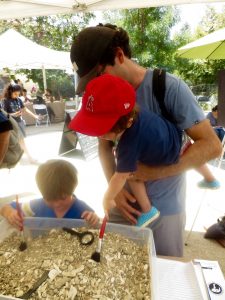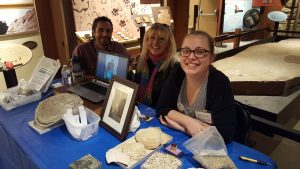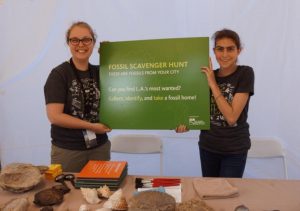EPICC TCN Project Overview
EPICC is am NSF-funded partnership, or “Thematic Collections Network,” between nine natural history institutions, with an aim to digitize Cenozoic marine invertebrate fossils from the Eastern Pacific. The bivalves, gastropods, crabs, echinoids and other invertebrates found in our nine collections span the last 66 million years of Earth’s history. Over the course of four years of the grant we will make 1.6 million specimen records available online through digital data and photographs. The LACMIP collection will digitize at least 800,000 of these specimen records, with a focus on the Plio-Pleistocene of Southern California. Much of this work has been and will continue to be conducted by student interns and student assistants from local community colleges and universities.
The overarching goal of the EPICC project is to make invertebrate paleontology collections more accessible, and to provide crucial digital data about major climatic changes over the past 66 million to climate scientists. Understanding how marine ecosystems have responded to climate change in the past can help inform our understanding of the future.
epicctcn.org
EPICC TCN Partners
Natural History Museum of Los Angeles County
California Academy of the Sciences
National Museum of Natural History
Paleontological Research Insitution
University of Alaska Museum of the North
University of California Museum of Paleontology
University of Oregon Museum of Natural and Cultural History
University of Washington Burke Museum
EPICC Outreach
This project is supported by the National Science Foundation (DBI-1502500, DBI-1503065, DBI-1503545, DBI-1503611, DBI-1503613, DBI-1503628 and DBI-1503678; 2015-2019).




